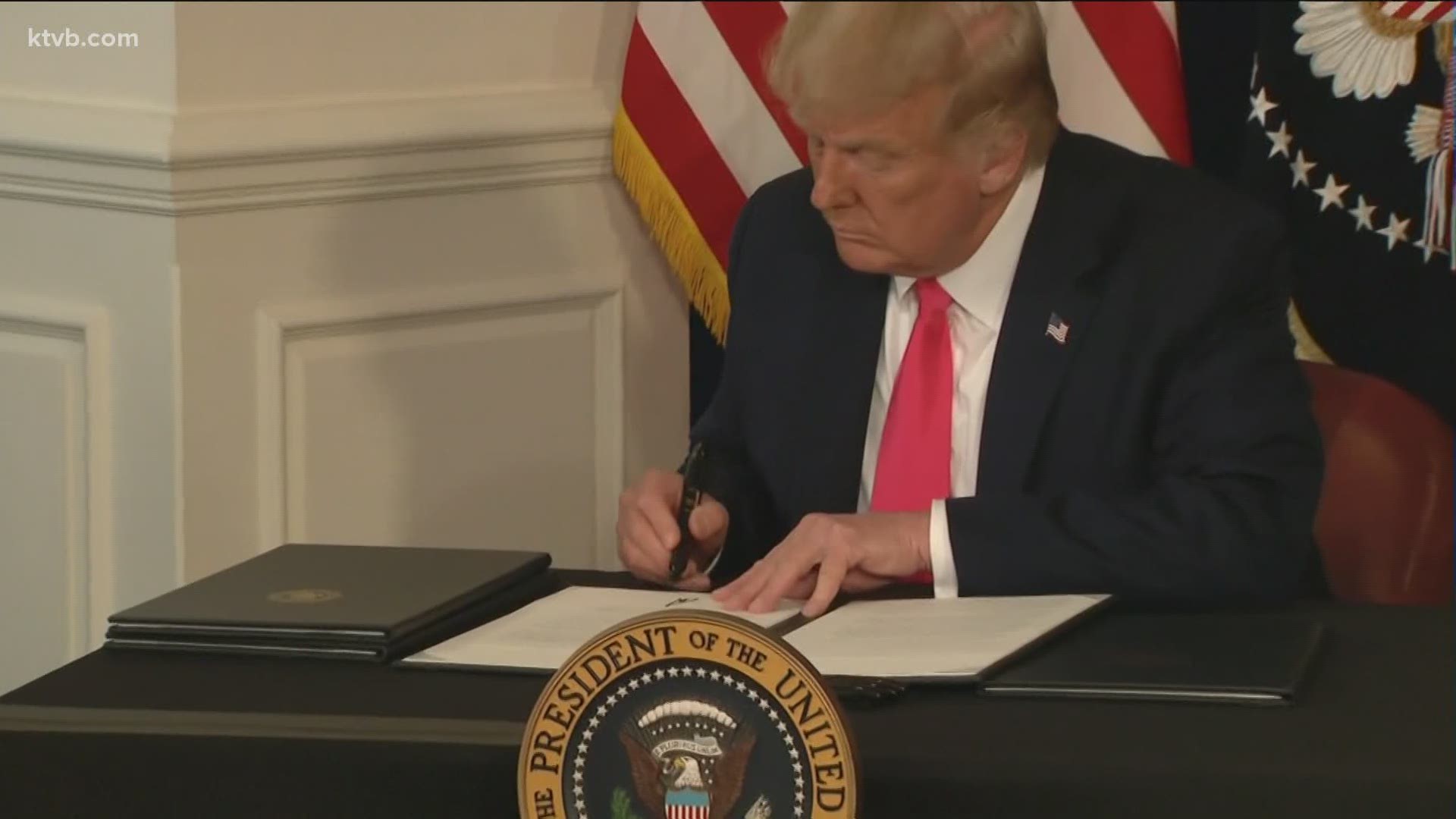BOISE, Idaho — Over the weekend, President Donald Trump issued four executive orders, all of them meant to respond to the economic fallout due to the coronavirus pandemic.
This comes as Congress still cannot come to a deal to send financial assistance to millions of struggling Americans.
The president's executive orders covered four topics. One aims to increase the unemployment benefit, one defers payroll taxes, one defers student loan interest and payments, and one asks top officials to consider another eviction ban.
Trump's orders encroached on Congress' control of federal spending and seemed likely to be met with legal challenges. The president cast his actions as necessary given that lawmakers have been unable to reach an agreement to plunge more money into the stumbling economy.
“The president has done what he can do,” said Sen. Jim Risch (R-Idaho). “Americans need help and I support the president. I'd rather have it done through congressional legislation.”
One executive order will defer payroll taxes for Americans who make less than around $104,000 per year. This means those people will not see the reductions out of their paychecks for things like Medicare and Social Security.
“The purpose of everything right now is to enhance liquidity,” Risch said. “We need liquidity in the marketplace.”
This order does not cut the payroll tax, it only defers the payments until next year. This means the tax dollars could be paid back later and depends on what Congress does or doesn't do.
“If anything, it will be done over time,” Risch said of the deferred taxes. “There'll be tremendous pressure to forgive or significantly reduce what was suspended.”
Another of the president's executive orders will bring back the federal unemployment money. Congress had authorized an extra $600 per person, per week to pay out to unemployed Americans, but that expired in July. According to Trump's order, instead of $600, it'll be $400 on top of the regular unemployment benefit doled out by each state.
States are also expected to kick in 25% of that amount too.
“This is a work in progress. It was a matter of a lengthy discussion in our conference this morning,” Risch said. “There are a number of ways being proposed that the states can step up to make this happen whether it be borrowing through the fund or some other novel ideas that are on the table right now.”
The president also signed an order that would allow top officials to consider stopping evictions for many Americans. The order specifically calls for Health and Human Services Secretary Alex Azar and CDC Director Robert Redfield to consider whether an eviction ban is needed or not.
The order also calls for the secretary of the Treasury and the secretary of Housing and Urban Development to identify available federal funds to provide assistance.
While the language in the order doesn't call for stopping evictions right now, Risch thinks that'll happen.
“That language is indicative that [Trump] is going to act,” he said.
The fourth executive order the president signed will defer federal student loan payments and interest until the end of the year. This was initially ordered back in March, but that was set to expire at the end of September. This extends the period now until Dec. 31, 2020.
“There's almost unanimous agreement that a suspension for a period of time is appropriate,” Risch said.
The president has said he signed the orders because Congress has not yet passed a second coronavirus relief bill. Risch told KTVB that Republicans are still negotiating the terms of the bill with Democrats.
“Most items out of the 15 or so that are on the table are agreed to,” Risch said. “There are only a couple that aren't. I don't think they can sustain. We're hopeful they will come to the table.”
The Associated Press contributed to this report.
Facts not fear: More on coronavirus
See our latest updates in our YouTube playlist:

